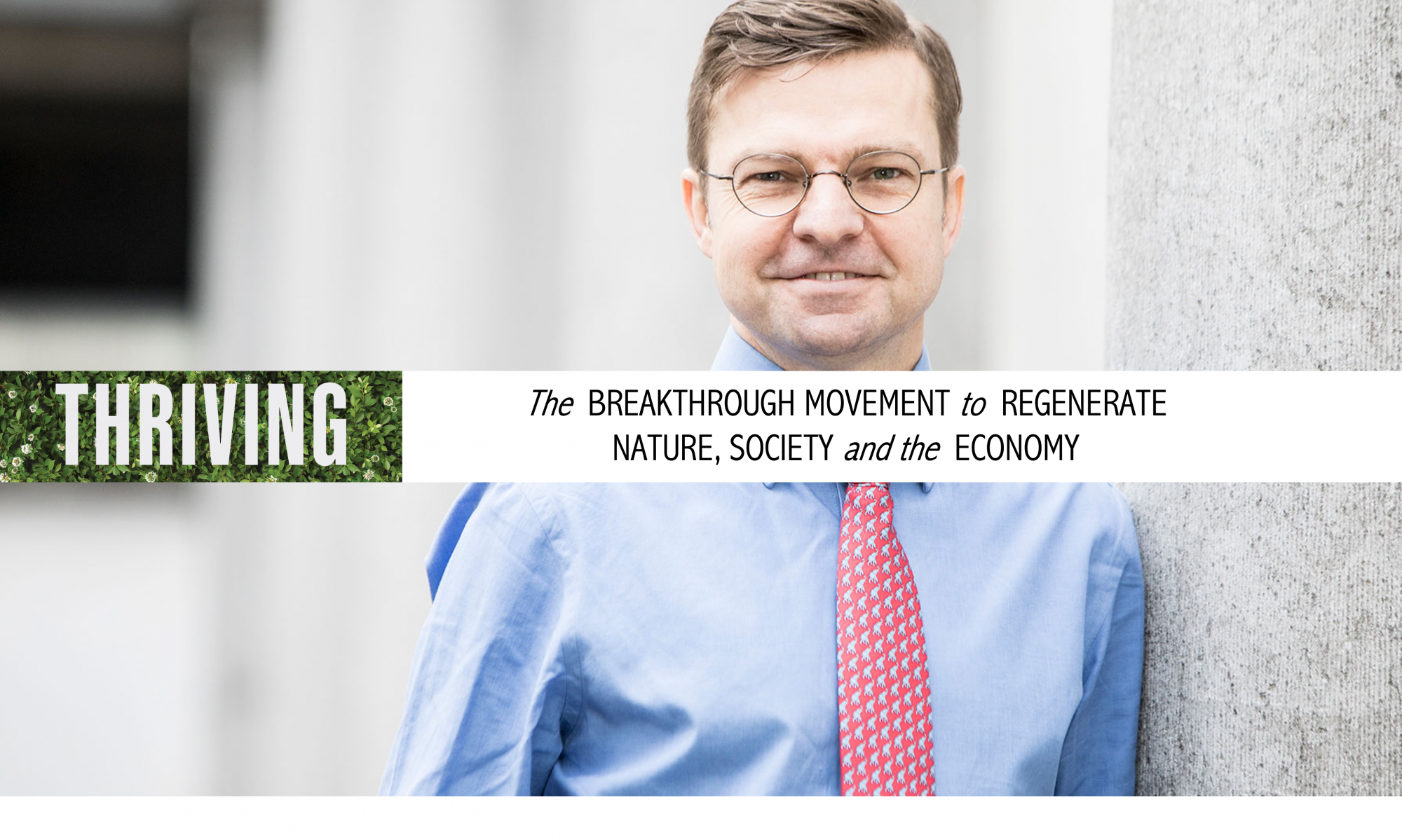Receive a daily dose of purpose-inspired quotes and thought-provoking reflections from Wayne Visser: Purpose Inspired Daily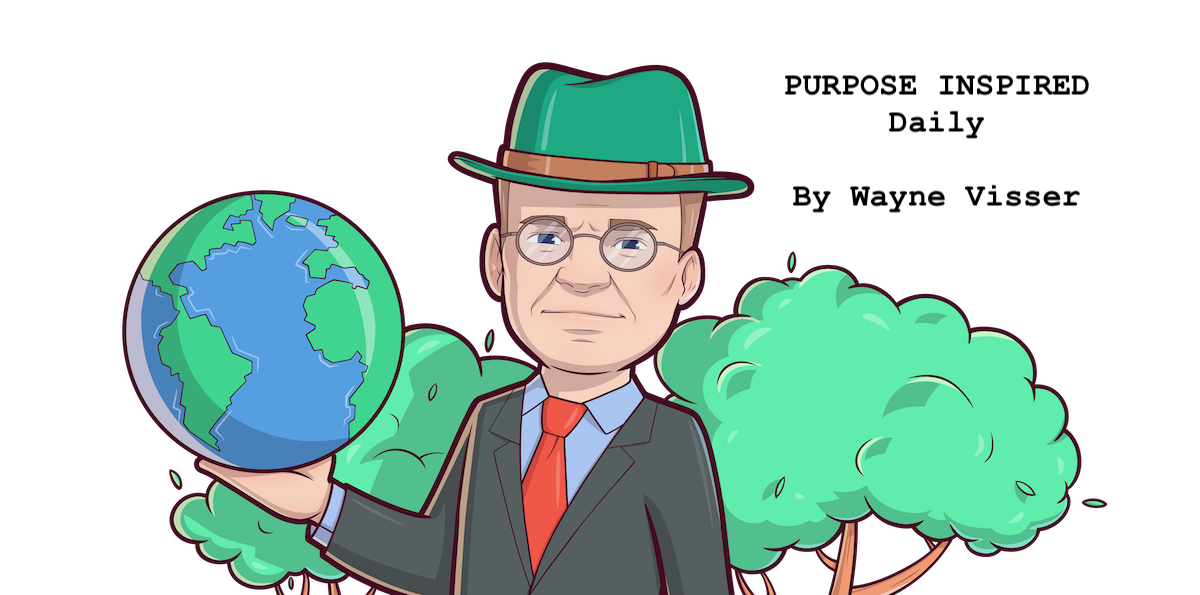
Overview
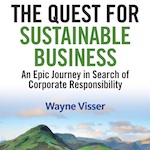 Dr Wayne Visser is the author of 41 books, including Thriving: The Breakthrough Movement to Regenerate Nature, Society, and the Economy (Fast Company Press, 2022), including 8 poetry collections, and has been a guest columnist for The Huffington Post, The Guardian and the World Economic Forum. In addition, he has published over 330 chapters, papers, articles, blogs and reports (listed under Articles). He also writes and shares his travel diaries, prose, poems and quotable quotes. As he puts it in his poem, The Writer: I write my waking incoherence / And when I sleep, I dream in words / I write out lines as daily penance / And let them go, like captive birds. Explore his writing by clicking on the links below, or scroll down to read interviews conducted with him about being an author.
Dr Wayne Visser is the author of 41 books, including Thriving: The Breakthrough Movement to Regenerate Nature, Society, and the Economy (Fast Company Press, 2022), including 8 poetry collections, and has been a guest columnist for The Huffington Post, The Guardian and the World Economic Forum. In addition, he has published over 330 chapters, papers, articles, blogs and reports (listed under Articles). He also writes and shares his travel diaries, prose, poems and quotable quotes. As he puts it in his poem, The Writer: I write my waking incoherence / And when I sleep, I dream in words / I write out lines as daily penance / And let them go, like captive birds. Explore his writing by clicking on the links below, or scroll down to read interviews conducted with him about being an author.
Go to Books / Go to Articles / Go to Poetry / Go to Travel Diaries / Go to Quotable Quotes
Author Q&A
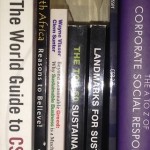 Over the years, Dr Visser has given several interviews to people and publications who are interested in him as an author and his views on writing. Below is a selection of questions and answers taken from a number of these interviews. They convey a passion for words and for the written form. As he puts it in his poem, I Want to Be a Writer: When you wake up and want to write / A writer you will be. There is also a Poet Q&A for interviews about his views on poetry.
Over the years, Dr Visser has given several interviews to people and publications who are interested in him as an author and his views on writing. Below is a selection of questions and answers taken from a number of these interviews. They convey a passion for words and for the written form. As he puts it in his poem, I Want to Be a Writer: When you wake up and want to write / A writer you will be. There is also a Poet Q&A for interviews about his views on poetry.
Where do you come from? Where did you grow up?
I was born in Bulawayo, Zimbabwe, and moved to Cape Town when I was eight, where I fell under the spell of the mountain. I think of myself as an African. Africa is in my blood and eternally inspires me – on my 21st, I even made “Africa” one of my official middle names.
What drew you to writing and when did you begin writing?
I wrote a cute little story when I was eight called “My Shoes Are Magic”. But it was only really in high school, thanks to my English teacher at Fairbairn College, that I began to be inspired by the writing of others – mainly poetry. I think I was drawn to the excitement of discovery (seeing new worlds through others’ eyes) and the powerful emotions that the words evoked in me. I even remember, instead of studying the night before my final Matric English exam, I was copying out my favourites from our poetry textbook that had to be handed in the next day. At the time, I was also going through an existential crisis and so I began writing a diary, which has been instrumental in learning to express myself on the page. But, if the truth be told, it was a passionate and unrealisable crush on a girl at university (UCT) that really got the juicy words flowing.
What did you read when you were a child and how did it influence you if at all?
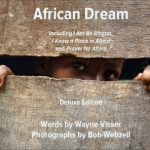 I read all the usual children’s books – Enid Blyton, the Hardy Boys, Roald Dahl and Willard Price’s African adventure stories. My parents also read Call of the Wild (Jack London) and Children of the Oregon trail to my sister and I when were we still fairly young, and they left a real impression. But, as I said, it was really in high school that I began to appreciate the power of writing – poems like “Horses on the Camargue” and books like Jonathan Livingston Seagull (Richard Bach) and the Afrikaans book, Raka (NP van Wyk Louw). Many of the books that influenced me the most had to do with the power of parables.
I read all the usual children’s books – Enid Blyton, the Hardy Boys, Roald Dahl and Willard Price’s African adventure stories. My parents also read Call of the Wild (Jack London) and Children of the Oregon trail to my sister and I when were we still fairly young, and they left a real impression. But, as I said, it was really in high school that I began to appreciate the power of writing – poems like “Horses on the Camargue” and books like Jonathan Livingston Seagull (Richard Bach) and the Afrikaans book, Raka (NP van Wyk Louw). Many of the books that influenced me the most had to do with the power of parables.
When and how did you first come to be published? What was the book?
Beyond Reasonable Greed (with Clem Sunter) was my first book. I had met Clem through my work at KPMG as a management consultant and I asked him if he would consider writing a forward for the book I wanted to do on business transformation. He agreed, but after some early drafts, we discovered that we shared many common ideas, and so we decided to write and publish the book together. It was a great experience to collaborate with him.
Who or what has influenced your writing the most?
The biggest personal influence was Bob Steyn, the late minister of the Cape Town Unitarians, because he introduced me to so many of the philosophical authors that have shaped my thinking. The fiction writer that has had the most influence on me is Richard Bach, since he often writes inspirationally using parables and metaphors, and I love Kahlil Gibran and Ben Okri’s poetry. In non-fiction, Marilyn Ferguson’s Aquarian Conspiracy stoked my interest in exploring and writing about social and personal transformation.
What is your vision? What do you hope to give to readers through your work?
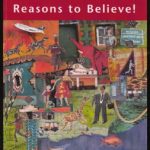 My vision is to inspire people to make a positive difference – in their own lives and in the world. That is the strong theme in my book with Guy Lundy (South Africa: Reasons to Believe) – we have to power to make things better, and it all starts with a constructive attitude. I hope that, through my writing, I contribute to people’s sense of personal mission and meaning in their lives.
My vision is to inspire people to make a positive difference – in their own lives and in the world. That is the strong theme in my book with Guy Lundy (South Africa: Reasons to Believe) – we have to power to make things better, and it all starts with a constructive attitude. I hope that, through my writing, I contribute to people’s sense of personal mission and meaning in their lives.
What are you working on?
I am working on three books at the moment, all fiction: The Little Book of Business Inspiration is a collection of poetic reflections on business; Parkbench Perspectives is about how the world looks completely different, depending on whose eyes you are looking through; and Dreams of Gold is a rags-to-riches parable story set in South Africa, which is about discovering what is really important in life.
Who do you read? What are you reading now?
I read autobiographies, spiritual parables, and the occasional classic, plus books on African travel, modern philosophy and business transformation. At the moment, I am reading Synchronicity, and Modern Man In Search of a Soul (both Carl Jung), The Farther Reaches of Human Nature, and Motivation and Personality (both Abraham Maslow), SQ: The Ultimate Intelligence, and Rewiring the Corporate Brain (both Danah Zohah), Dark Star Safari (Paul Theroux), The Poisonwood Bible (Barbara Kingsolver), and The Wheel of Life (Elisabeth Kubler-Ross).
What movies or music do you enjoy?
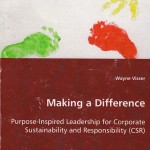 Movies – fantasy (Lord of the Rings, the Matrix, Brazil), romantic comedy (Four Weddings & a Funeral, Nottinghill), action/suspense (The Fugitive, Conair), musicals (JC Superstar, Moulin Rouge) and drama/arts (The Red Violin, Shine), biographical (Shawshank Redemption, A Beautiful Mind); Music – African (Johnny Clegg, The Power of One, Amampondo), rock n roll (Elvis, Neil Diamond), folk (Don McClean, Carpenters, Paul Simon), 80s pop (Nik Kershaw, Howard Jones), greats (Elton John, Queen, Billy Joel, Madonna), light classics/musicals (Sarah Brightman, Michael Ball, Charlotte Church, Elaine Page), soundtrack/meditative (Big Blue, Twin Peaks, The Mission, Spirits, Vangelis)
Movies – fantasy (Lord of the Rings, the Matrix, Brazil), romantic comedy (Four Weddings & a Funeral, Nottinghill), action/suspense (The Fugitive, Conair), musicals (JC Superstar, Moulin Rouge) and drama/arts (The Red Violin, Shine), biographical (Shawshank Redemption, A Beautiful Mind); Music – African (Johnny Clegg, The Power of One, Amampondo), rock n roll (Elvis, Neil Diamond), folk (Don McClean, Carpenters, Paul Simon), 80s pop (Nik Kershaw, Howard Jones), greats (Elton John, Queen, Billy Joel, Madonna), light classics/musicals (Sarah Brightman, Michael Ball, Charlotte Church, Elaine Page), soundtrack/meditative (Big Blue, Twin Peaks, The Mission, Spirits, Vangelis)
What was it that made you start writing or did you always want to write?
I guess it started pretty early. When I was 8 years old, I was received an Eisteddfod award for writing a little story called “My Shoes Are Magic”. But it was only really in my final year of high school (thanks to the encouragement of my English teacher), that I discovered how much I enjoyed creative writing. I remember writing about “The Hungry Wind” in my final year Matric exam. Then, in my first year of university, I had a “crush” on a girl, so she became my first muse and I began writing poetry. It was also during university that I began writing articles for magazines, and first had the idea of writing a book (on “holistic business”). The book finally happened over 10 years later (“Beyond Reasonable Greed”), when I had gained the confidence, knowledge and experience to write about corporate sustainability and responsibility. Now I write for a combination of personal satisfaction, creative expression and professional development.
Do you have a wife or kids?
I was married for 12 years (no kids), but am now divorced. As you will see from my poetry on “love”, relationships are a source of great inspiration, even during the difficult times when they end.
What is your most profound source of inspiration?
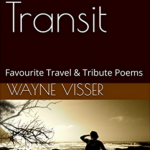 I am constantly fascinated by the world (as Johnny Clegg put it, our “cruel, crazy, beautiful world”) and especially our place in it. So I find myself inspired by philosophy, art, people and nature. And of course, there is no shortage of inspiring people to look up to, from Lao Tsu, Leonardo Da Vinci and Monet to Einstein, Gandhi and Mandela. There was also a Unitarian minister, Bob Steyn, who became a profound source of inspiration for me. (you will see, I have written several dedication poems to him).
I am constantly fascinated by the world (as Johnny Clegg put it, our “cruel, crazy, beautiful world”) and especially our place in it. So I find myself inspired by philosophy, art, people and nature. And of course, there is no shortage of inspiring people to look up to, from Lao Tsu, Leonardo Da Vinci and Monet to Einstein, Gandhi and Mandela. There was also a Unitarian minister, Bob Steyn, who became a profound source of inspiration for me. (you will see, I have written several dedication poems to him).
What was the most life changing experience?
My divorce. This was the most painful and difficult experience I have been through, but it taught me many lessons and allowed me to explore other creative parts of myself.
What goals do you have in life?
My goals have changed over the years. I have actually written about this before, so I attach some extracts from my diary. Now, while I have professional goals that have to do with “making a positive difference in the world by connecting and empowering corporate sustainability & responsibility professionals”, my personal goals have more to do with quality of life – e.g. am I writing well and inspiring others? Am I taking the time to enjoy nature’s beauty and the world’s diversity?
You are very tuned into the business and emotional side of things. Do you find it hard to balance the two?
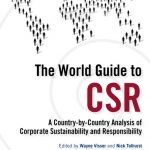 I haven’t really found business and emotions to be in conflict. Sometimes, business can be emotionally draining, especially managing difficult client and employee relationships. But on the whole, I have been very fortunate that the people and organisations I have worked with have provided a supportive environment for personal development.
I haven’t really found business and emotions to be in conflict. Sometimes, business can be emotionally draining, especially managing difficult client and employee relationships. But on the whole, I have been very fortunate that the people and organisations I have worked with have provided a supportive environment for personal development.
Where did you grow up?
Bulawayo, Zimbabwe until 8 years old, and then Cape Town (Goodwood, Parow, Rondebosch, Claremont). I have written a bit about this in my Q&A.
Where were your parents from and did the support you writing?
My mom was born in England and my dad in the Netherlands, but they both grew up in Zimbabwe, so I always felt more African than European. They have always been very encouraging and proud of my writing efforts. However, I believe they would support me in anything I choose to do.
If you could tell the world one thing, what would it be?
I wrote a poem about this (“My Letter to Children”), although admittedly this is more than one thing. I think I would tell the world to pay more attention to the beauty in life.
Will you ever come back to South Africa, maybe when you retire?
Yes, I expect I will, although I can’t say when. I have a deep love for Africa and a special connection with South Africa. For the moment, I carry these in my heart. For me, this is the most important thing. As I put it in my “I Am An African” poem – I Am An African … Not because I live on its soil, But because my soul is at home in Africa”.
Of all the books you have written on corporate responsibility, which do you feel is the most important in terms of the message you were trying to convey?
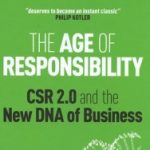 The Age of Responsibility: CSR 2.0 and the New DNA of Business . Not only does it fundamentally challenge business and the notion of CSR – for example, it starts by stating that CSR has failed and should either be killed off, or reinvented – but it is written in an narrative style that I think makes it an easy read, with lots of fascinating cases and stories of ‘the good, the bad and the ugly’ of corporate sustainability & responsibility.
The Age of Responsibility: CSR 2.0 and the New DNA of Business . Not only does it fundamentally challenge business and the notion of CSR – for example, it starts by stating that CSR has failed and should either be killed off, or reinvented – but it is written in an narrative style that I think makes it an easy read, with lots of fascinating cases and stories of ‘the good, the bad and the ugly’ of corporate sustainability & responsibility.
Which book did you personally enjoy writing the most?
The first one, Beyond Reasonable Greed (co-authored with Clem Sunter), mainly because I used lions and elephants as a metaphor for unsustainable and sustainable companies. It was fascinating researching the traits of both species, and it was fun creatively applying the analogy to business. It was also very forward looking and together with my co-author we developed two future scenarios for business: ‘Oases in the Desert’ and ‘Plains of the Serengeti’. We even ended up with ‘leophants’ – those companies in between.
What made you decide to publish Landmarks for Sustainability? Which landmark is the most significant in your personal view?
The idea behind Landmarks, which I wrote for the University of Cambridge Programme for Sustainability Leadership, was to capture the seminal events that have shaped the sustainability agenda over the past 20 years (although we also included a timeline of landmarks that goes back almost 100 years). There are certain corporate events – like Shell’s Brent Spar fiasco, McDonald’s McLibel trial, Nike’s supply chain wake-up call and Enron’s collapse – that most people in CSR have heard about, but they don’t have the facts and figures at their finger tips. Likewise for positive breakthroughs in transparency, fairtrade, poverty alleviation and so-on. We also decided to make it highly visual (lots of photos) and readable (bullets, feature boxes, etc.) to make sure busy people could dip into it easily. For me, the most significant landmark event was the publication of the Millennium Ecosystem Assessment in 2005, because it shows us the extent to which all our other CSR and sustainability efforts are failing at a catastrophic scale.
The Top 50 Sustainability Books has a similar look and feel to Landmarks for Sustainability. Was that deliberate?
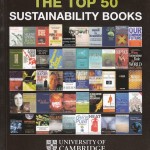 Yes, it was another book for the Cambridge Programme for Sustainability Leadership and it was designed to be a highly accessible reference book. This time, however, we focused on ideas rather than events that have changed the sustainability world. Many people working in sustainability have heard about these classic books, but do not have the time to read them all, so we decided to provide short synopses, with key messages, pull-out quotes and extracts from interviews I did with many of the authors. I think it is a great guide to the most important thinking in sustainability over the past 50 years and more.
Yes, it was another book for the Cambridge Programme for Sustainability Leadership and it was designed to be a highly accessible reference book. This time, however, we focused on ideas rather than events that have changed the sustainability world. Many people working in sustainability have heard about these classic books, but do not have the time to read them all, so we decided to provide short synopses, with key messages, pull-out quotes and extracts from interviews I did with many of the authors. I think it is a great guide to the most important thinking in sustainability over the past 50 years and more.
In The World Guide to CSR, what surprised you the most as you received contributions from all around the world?
The first surprise was the diversity of submissions – not just the usual suspects among the G20, but also countries like Armenia, Bangladesh, Iran, Iceland, Liberia, Peru, Romania and United Arab Emirates. The second and most delightful aspect was learning how each country’s cultural tradition has shaped CSR practices, in some cases (such as in Azerbaijan, Turkey and India) with these influences having evolved over centuries.
Having now completed your world CSR tour, what are the most important insights you bring back with you?
There are so many insights: the fact that a lot of the most important social innovation is taking place in developing countries (like India), that awareness and expectations of CSR are higher in places like Brazil than in the UK, that many non-OECD countries and companies are still stuck in the CSR Ages of Philanthropy and Marketing, that Europe and America is mesmerised by the Age of Management, and that very very few companies anywhere recognise that the concept of CSR – and the larger industrial model of shareholder-driven capitalism – is fundamentally flawed and will never solve the problems it claims to be most concerned about.
How useful do you feel The A to Z of Corporate Social Responsibility remains? It was published a couple of years ago but the jargon has moved on. Do you plan a second edition?
In fact, a second edition came out this year (2010) – a paperback version with updated content, including additions on the global financial crisis and ISO 26000. Beyond this, I don’t feel that the underlying concepts or the core codes and standards have changed fundamentally. It remains highly useful as a searchable reference book, especially since it is also out in an e-book version.
Beyond Reasonable Greed was an early book on the subject of corporate responsibility. Did people understand your message? What sort of reactions did you receive? Have companies traded in their fangs for tusks?
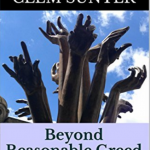 The timing for the book was perfect, as it came out just when the Enron and Worldcom scandals were hitting the headlines. So I think the message was intuitively understood, but it was not seriously acted upon. To use the language of the book, we saw the emergence of many ‘leophants’ after 2002. What is different, comparing this with writing The Age of Responsibility almost 10 years later, is that today there more lion corpses on the slab to dissect (like Lehman Brothers) and a number of genuine elephant companies to learn from (like Interface), as well as any number of injured leophants (like BP) that are getting left behind.
The timing for the book was perfect, as it came out just when the Enron and Worldcom scandals were hitting the headlines. So I think the message was intuitively understood, but it was not seriously acted upon. To use the language of the book, we saw the emergence of many ‘leophants’ after 2002. What is different, comparing this with writing The Age of Responsibility almost 10 years later, is that today there more lion corpses on the slab to dissect (like Lehman Brothers) and a number of genuine elephant companies to learn from (like Interface), as well as any number of injured leophants (like BP) that are getting left behind.
What do you feel Corporate Citizenship in Africa added to the CSR equation in South Africa? Do you feel the CSR message is understood by leading businesses in SA?
The book did a number of things. First, I would say that it was a book about Africa, not just South Africa, but it did point out the general lack of academic research on CSR beyond South Africa and Nigeria. Second, it confirmed our suspicion that most research on CSR in Africa was qualitative, with little or no country-comparative data. And third, it showed that research on CSR in South Africa was also quite skewed, largely towards business ethics. The question of whether CSR is understood by leading businesses in SA is different. The answer is unequivocally ‘yes’. That is the interesting thing about many developing countries – businesses know that they can’t succeed in societies that fail; often the business case is much clearer and the moral case much stronger.
Making a Difference is a call to action for individuals to leave a meaningful legacy. How would you describe your own personal legacy as you wish to see it?
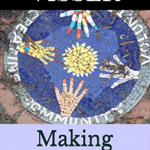 Making a Difference, which is based on my PhD research, is not only about leaving a legacy, but also about what gives us deep satisfaction or meaning in our work as CSR practitioners. It turns out that motivations vary according to different leadership styles or change agent types – whether you are more of an expert, facilitator, catalyst or activist. As for my source of meaning, I most closely fit the expert type and derive my greatest satisfaction from being a thought leader (if indeed that’s what I am) and inspiring others through ideas.
Making a Difference, which is based on my PhD research, is not only about leaving a legacy, but also about what gives us deep satisfaction or meaning in our work as CSR practitioners. It turns out that motivations vary according to different leadership styles or change agent types – whether you are more of an expert, facilitator, catalyst or activist. As for my source of meaning, I most closely fit the expert type and derive my greatest satisfaction from being a thought leader (if indeed that’s what I am) and inspiring others through ideas.
How much of your overall time do you spend writing/editing books on CSR?
Writing goes in waves, although considering that I have written and edited 11 books over the past 8 years, there have not been many periods when I am not writing. I suppose if I had to guess, I’d say I spend about 20% of my time actually writing, but probably 50% of my time is spent doing explicit or implicit research on which the books are based. Lately, a lot of the rest of my time has been spent sharing my thoughts and ideas with others, through teaching, workshops, training and various networks.
Which book gave you the most personal satisfaction and why?
I think that would be Business Frontiers, as this was my first independently authored book. In fact, it is a collection of my writings on social responsibility, sustainable development and economic justice over more than a decade, so it was very satisfying to see those collected together in one place. In addition, it allowed me to publish some of my more creative writing on the subject – with chapters like Holistic Business, The Corporate Battle for Hearts & Minds, Future Images Beyond the Information Age, Connecting Earth & Sky, Tree of Life, and even a poetic parable called Quest for Gold.
Which book about CSR have you not written yet?
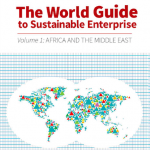 There are many I have not written, and in fact I turn down book projects fairly regularly now. The more compelling question is, what am I passionate enough about to want to put in the blood, sweat and tears required to turn it into a book? I’d like to write up my CSR Quest world tour as a kind of travel book with a CSR twist. I’d also like to do a book on Purpose-Inspired Leadership, as well as writing a business parable (i.e. fiction book) that captures the lessons of CSR but never mentions the word. And I’d like to do a book called Smart, Sustainable and Inclusive, which tackles the macro-level of economics and culture, rather than the micro-level of companies and CSR.
There are many I have not written, and in fact I turn down book projects fairly regularly now. The more compelling question is, what am I passionate enough about to want to put in the blood, sweat and tears required to turn it into a book? I’d like to write up my CSR Quest world tour as a kind of travel book with a CSR twist. I’d also like to do a book on Purpose-Inspired Leadership, as well as writing a business parable (i.e. fiction book) that captures the lessons of CSR but never mentions the word. And I’d like to do a book called Smart, Sustainable and Inclusive, which tackles the macro-level of economics and culture, rather than the micro-level of companies and CSR.
You are also somewhat of a poet and have published a collection of poems? Is this an insurance policy in case CSR doesn’t work out ….. ?
Were it but so! No, not really. Poetry is just my way of expressing a deeper level of myself and being a bit creative (alongside my dabbling in painting, sketching and photography). It is probably my most authentic voice, but poetry is seldom the stuff of fame and fortune. It’s a very personal and subjective hobby, which I do primarily for myself. If the words resonate with others – as they do seem to on occasion – then that’s a bonus and I am delighted.
Do you like Chunky Monkey?
I had to look it up, so I guess that is an answer in itself.
Anything else you want to mention?
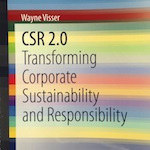 People should know that I’m more interested in what is being done that what labels we give things. It so happens that I talk about CSR 2.0 – which I also call systemic CSR or radical CSR – and I use CSR to mean ‘corporate sustainability and responsibility’, but I really don’t care if people have different jargon. For me, the proof must be in the results and for too long we have focused on measuring CSR activities rather than the societal impacts of business. My new test for whether a company is a CSR 2.0 pioneer in the Age of Responsibility is simple: what is their level of admission and ambition? i.e. do they admit the extent of their un-sustainability and irresponsibility, and do they set audacious targets like zero waste, 100% renewable energy and rising stakeholder happiness.
People should know that I’m more interested in what is being done that what labels we give things. It so happens that I talk about CSR 2.0 – which I also call systemic CSR or radical CSR – and I use CSR to mean ‘corporate sustainability and responsibility’, but I really don’t care if people have different jargon. For me, the proof must be in the results and for too long we have focused on measuring CSR activities rather than the societal impacts of business. My new test for whether a company is a CSR 2.0 pioneer in the Age of Responsibility is simple: what is their level of admission and ambition? i.e. do they admit the extent of their un-sustainability and irresponsibility, and do they set audacious targets like zero waste, 100% renewable energy and rising stakeholder happiness.
Why do you like writing?
I like writing, because it allows me to create unique worlds. Words are like magic – as they describe the world around us and inside us, and by doing so, they also create these in other people’s minds. Writing is the way we share our imagination with others, and – as Einstein said – imagination is more important than knowledge.
